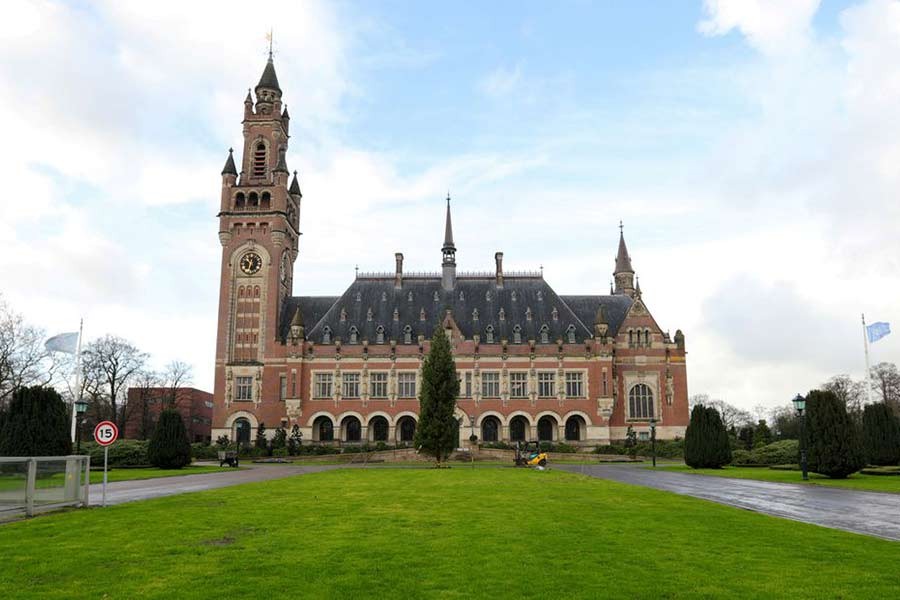On the first day of the current round of hearing (from February 21-28) of the case of genocide for which the Republic of the Gambia sued Mynamar at the Hague-based International Court of Justice (ICJ), the representatives of the Naypyidaw military rulers have argued in favour of dropping the case. The reason its lawyer Christopher Staker cites is that the case is inadmissible on the ground that only Gambia has filed the case instead of two states 'as required by the ICJ's statutes'. He also complained that Gambia was, moreover, a 'proxy applicant' because it acted on behalf of the Organisation of the Islamic Cooperation (OIC). The OIC proposed that a charge of genocide be brought against Myanmar and Gambia stepped in and not the other way round. So, he argued that the UN court has no jurisdiction to try the case. Interestingly, the shadow "National Unity Government (NUG)" dominated by Aung San Suu Kyi's ousted party has rejected such objections and pleaded with the ICJ to cancel hearing on it and proceed with the substantive issues.
Gambia's counterarguments were scheduled to be delivered yesterday. True, the OIC has supported the move but the military junta's lawyer has conveniently maintained silence over the backing of Canada and the Netherlands. Gambia neither has to worry about the procedural filing formalities nor about the merit of the case. Ever since the case opened for hearing in 2019, the provisional order delivered in January 2020 requires Myanmar to take all measures to prevent genocide of the Rohingya while the court proceedings are underway. By this time things have moved fast with the army takeover. Popular uprising against military rule has brought the army and the people face to face. No fewer than 1,500 civilians were killed by the military. If the military junta can kill its people belonging to the Buddhist community, it is unlikely to have any qualms about committing genocide against an ethnic community like the Rohingya.
So, the preliminary objection to the Application of the Convention on the Prevention and Punishment of the Crime of Genocide raised by the military junta's lawyers may be an attempt either to buy time or to divert the focus from the main issue---the army's crime of ethnic cleansing as well as its oppression and murder of its own people. Is not it an affront to the new millennium's civilisation that a military oligarchy usurps power and also resorts to mass killing of its own people in order to stay in power? In fact, the military in Myanmar is incorrigible and sadly it has backing from big international players.
As long as this troublesome neighbour's internecine conflict continues to drag on, Bangladesh also has to suffer its consequences on many fronts. The one million Rohingya refugees are a heavy burden on this country. Additionally, a country in turmoil creates criminals of all shapes and sizes through which many of its aberrations are exported to neighbouring countries. In case of Myanmar, the most dangerous of those is drug. Clearly, the military played to the gallery when it recently held talks with Bangladesh on repatriation of the Rohingya. As uncertainty looms large over repatriation, smuggling of drug and infiltration of Arakan Rohingya Salvation Army (ARSA) continue to remain a headache for the host nation.


